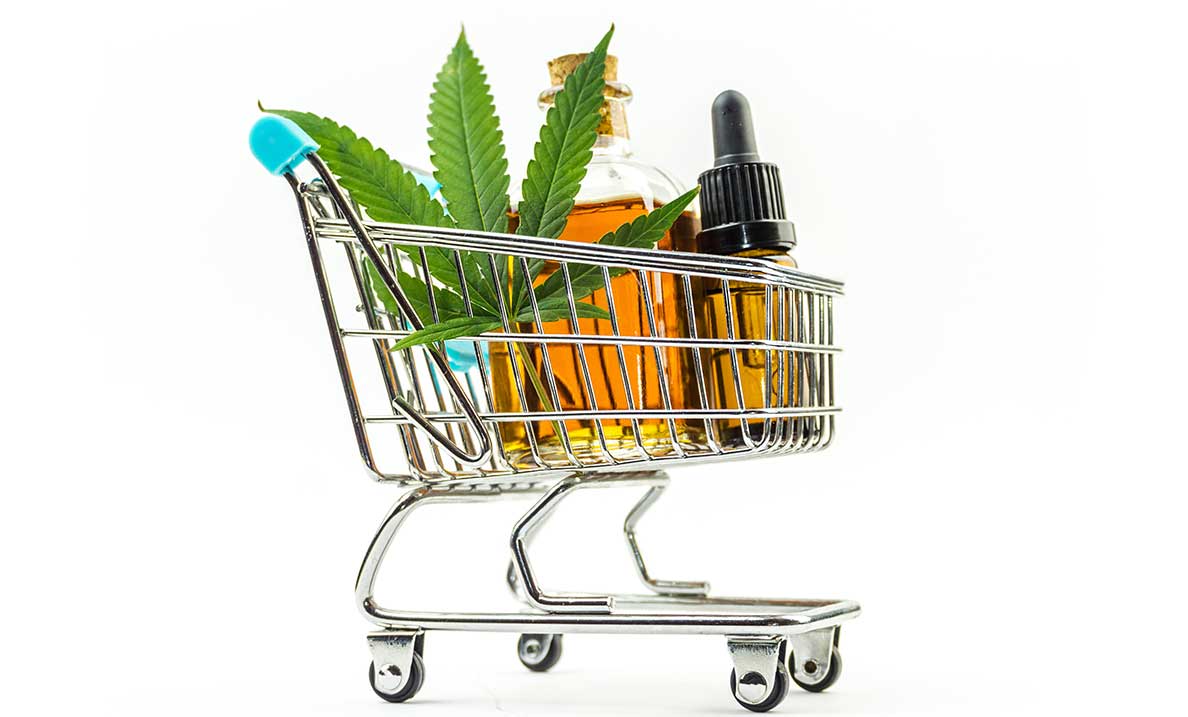Part 1: Hemp Testing Best Practices for Growers
Part 2: Hemp Testing Best Practices for Extractors
Part 3: Hemp Test Best Practices for Manufacturers
Hemp and Cannabis products fill the shelves more frequently than ever as Farm Bills across the nation become enacted, and the use of Medical Marijuana products increases in popularity. With this, all Hemp and Cannabis products must be thoroughly tested throughout the entirety of their life cycle to ensure the final product is free from any harmful contaminants and safe for consumers. To provide such safety, the plant must be tested throughout its life, at the farm, pre-and post-harvest, throughout the extraction process, and once again when it reaches the manufacturers. The plant’s last stage of life is when it makes its way to the retailers. While retailers are not responsible for testing the product themselves, they must be up-to-date with all testing procedures and aware that their product has been thoroughly tested before placing it on their shelves for the public.
Understanding the importance of testing on all Hemp and Cannabis products is essential for retailers in terms of their credibility and consumer safety to ensure that they provide the public with the highest quality products, free of any harmful contaminants.
How to Ensure Quality Testing
According to Kaycha Lab’s Compliance Manager, Shari Campbell, retailers can ensure the quality of their product in multiple ways, “The first one is, they should be making sure a third-party laboratory has tested the products that they stock their shelves with. Then, the second thing is, understanding the Certificate of Analysis (CoA) from the third-party testing laboratories.”
When it comes to testing, retailers should confirm that an ISO/IEC 17025:2017 accredited third-party laboratory has tested their product to eliminate any bias or tampering of results. Third-party laboratories are independent testing laboratories, which are not affiliated with the grower, producer, or manufacturer, and therefore their only interest is in providing accurate results to their client. Third-party labs such as Kaycha Labs have one goal: offering transparency, reliability, and accuracy with the consumer’s safety in mind.
After testing, manufacturers should receive a CoA from the lab, analyzing their product results. According to Campbell, a common misconception that retailers often have is that if a product has a CoA attached to it, it is safe for consumption or has been thoroughly tested. However, this is not always true. “There are a lot of laboratories out there, or smaller practices, where CoAs can be altered or CoAs don’t provide the pertinent information on whether or not that product’s contaminant levels are lower than they need to be,” Campbell says. “Getting them tested is important, but the retailers should also have an understanding of how to interpret a CoA. They should ask themselves, is the CoA giving me information that I can be confident in, in giving my customers this product?”
Hemp and Cannabis products help people and consumers use them for medicinal purposes, and therefore should be treated as such before and after distribution. Retailers may not be responsible for testing the product themselves. Still, ensuring that the manufacturer has tested the product before placing it on their shelves, advocates for said products. “The retailer is essentially the consumer advocate,” explains Campbell. “They should be arming themselves with understanding how to interpret the CoA and making sure that the products they’re passing onto the consumers are tested. They should also ensure that these products are safe for the consumers by confirming that what is listed on the labels is actually in the product.”
In addition to ensuring that testing has taken place at a third-party lab and understanding CoA’s, retailers should also enquire whether their product has gone through full-panel testing. “As the Farm Bill starts to go through, a lot of states are beginning to implement full-panel testing to include heavy metals, residual solvents, and microbials, not just potency,” says Campbell. Suppose a product has not been full-panel tested to meet state or federal guidelines. In that case, it can end up being pulled from the shelves, which hinders a retailer’s ability to sell the product and harms their reputation within the industry. To avoid this, retailers should ensure that they are doing their part throughout the process by confirming all products have been full-panel tested before placing them on the shelves.
Testing with Kaycha
Kaycha Labs is a third-party ISO/IEC 17025:2017 accredited laboratory that provides clients with full-panel testing for Hemp and Cannabis products, including potency, terpenes, pesticides, heavy metals, residual solvents, microbials, mycotoxins, lipids, nutrient content, environmental factors, and shelf life. In addition to providing full-panel testing, Kaycha also provides encrypted CoA’s to avoid manipulation. “All of our CoAs are password encrypted so that there’s no manipulation of the CoA,” Campbell explains. “Also, if there are any changes to the CoA, we don’t change the CoA directly. Instead, we create a revised CoA so that there’s traceability.” These testing practices are why Kaycha Labs is the number one testing facility in the country and why our clients can rely on us for results that provide accurate information and a relationship that allows us to solve the problem if a product has failed in some way.
At Kaycha, we believe all products should be treated with the same respect that medicine is, which means we collaboratively work as a team alongside our clients to ensure a final product that can be trusted time and time again. “It is a collective effort,” Campbell says. “When you are a patient, it’s a team that cares for you (doctors, nurses, pharmacists, etc.), and you as a patient are a part of that team. The laboratory, manufacturer, and retailers should function in that same manner for the highest quality results.”
Our main goal at Kaycha is to provide accurate and reliable testing for our clients to ensure that all products are safe for consumer consumption. We offer full-panel testing at labs throughout the country and complete transparency when it comes to results to provide our clients with a testing process that they can count on time and time again. To learn more about our testing practices, visit kaychalabs.com.
Part 1: Hemp Testing Best Practices for Growers
Part 2: Hemp Testing Best Practices for Extractors
Part 3: Hemp Test Best Practices for Manufacturers













